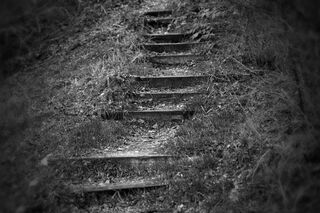Addiction
A First Encounter With Hard Drugs
A glimpse of the path to drug abuse.
Posted July 2, 2021 Reviewed by Kaja Perina

Note from the author: In this excerpt from our book, The Craving Brain: Science, Spirituality, and the Road to Recovery, my coauthor James B. describes his short journey from alcohol addiction to using cocaine. —Anderson Spickard Jr., M.D.
__________________________________
I stared down at a partially constructed assembly line and tried not to panic. My job was to finish setting up the line and create a plan to train the workers—and I didn’t want to blow it. But after a night of hard partying, my mind was feeling fuzzy. An electrical engineer was explaining to me a wiring process that we both knew I should be able to understand, but he might as well have been speaking a foreign language.
It was my fourth year as an engineering student, and thanks to a fraternity brother, I had landed a high-paying internship with a multinational telecommunications company. After three months of boring grunt work, I had discovered a way to make a small but critical change in a bar code label that saved the company a lot of money. A short time later, I was tapped as the project manager to set up an assembly line being relocated from Canada.
It was an amazing opportunity, with one small problem. Since joining a fraternity in my junior year, my party life had begun spilling over into my workday. My usual six to eight beers had become ten or twelve, with a couple of shots of liquor, and I was getting blackout drunk, not just on weekends, but during the week. One night, a fraternity brother and I made a pact to get drunk every day for a month. We both rose to the challenge, and afterward, to prove to an angry girlfriend that I didn’t have an alcohol problem, I quit drinking for an entire month.
Shortly after starting my internship, I was invited to a party by a group of fraternity guys who were among the elite of the elite in the Greek system. They all came from families with money and power, and as a kid from a middle-class family without connections, I knew my ticket was getting punched for only one reason—my reputation for being able to party like a rock star.
An hour or so into the party, I was invited into a back room.
“Help yourself,” the host said, gesturing to some lines of cocaine on the table.
I hesitated. My childhood yearning for the approval of cool kids had never died and accepting his invitation would take me to a new level of acceptance and belonging. But cocaine was something I had promised myself never to do. It had nearly destroyed my father, and the last thing I wanted was to become like him.
Then again, as I looked around at the guys in the room, I could see they were handling cocaine just fine. They were the sons of doctors and congressmen and lawyers. Maybe nothing’s wrong with the drug itself. Maybe there’s just something wrong with my father. He was too weak to handle drugs, but things will be different for me.
I would use cocaine socially—like normal people.
A single line gave me an immediate jolt of energy and pleasure. A second line was even better. After a couple more drinks, I realized I had finally found the perfect recipe for my partying. Cocaine gave me energy, and alcohol calmed the drug’s jittery edge.
Cocaine also solved my drinking problem. I had always been an upbeat guy with a lot of friends, but it was taking more drinks to get a buzz on, and too much alcohol made me belligerent or blacked out. With just a little coke, I could drink more, act like less of a jerk, and be more attractive to women. I could also stay awake for the drive home.
Of course, there was a downside. Since my partying lasted longer, it was harder to get up in the morning. My boss began to notice my late arrivals, and I was having trouble staying focused at work.
And now, here I was, standing at the assembly line, struggling to understand how it was wired. Feelings of panic flooded through me. To prevent the engineer from seeing my fear and confusion, I excused myself and went to the men’s room. After throwing water on my face, I gave myself a pep talk. You can do this job. You have to do it. Everything is on the line—not just your career but your social status. My tuition and living expenses weren’t cheap, and by now I was buying my own cocaine, instead of just using at parties.
Somehow, I pulled myself together and went back to work, forcing myself to focus on the engineer’s directions. Within a few days and with the help of other employees, the assembly line was wired and put together, and the workers trained. Another bullet had been dodged, a crisis averted.
Not bad, I told myself. A job well done and good times at night. What more could anyone want?




